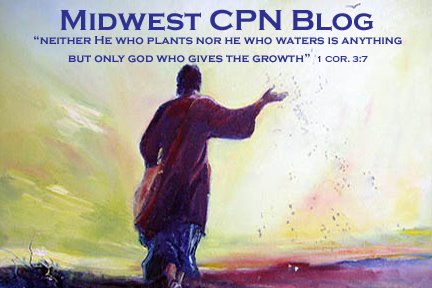
Over at Reformation 21, Carl Trueman writes of his concern that modern culture sets the agenda for today's churches.
He shares about how he was discussing his concerns over Mel Gibson's movie "The Passion of the Christ," (particularly the depiction of Christ on the big screen) with a student and how he had no intentions of taking the church youth group to see it. The student responds that he felt sorry for Trueman because his qualms about the movie was making him irrelevant to modern ministry.
Trueman writes:
"What shocked me in this encounter, however, was not that we had different views on the matter, but that the student could not even see that there was any question to be asked. For him, the question of the meaning, relevance, and application of the second commandment was not even a question. He just thought it was obvious that anything which generated interest in Jesus was a good thing; thus, my concerns about the visual depiction of Christ revealed me as an irrelevant old hack, a superannuated puritan who simply didn't get it. To me, this was a most dramatic symbol of how culture had come to set the theological agenda even within a conservative, confessional, reformed tradition, and to define the plausibility structures not simply of the answers but even of the questions. My question arose out of my concern to see what the Bible said to our cultural situation, and that refracted through centuries of discussion of this point; but this student did not even have the categories to see that there was any question to be asked."
That last line stood out to me: "this student did not even have the categories to see that there was any question to be asked."
To me this is one of the biggest problems facing the church planting movement today- we charge ahead with our ministry plans without asking the important questions because we do not even recognize that there are questions to be asked.
I'd like to do a poll on how many church planters have given much thought to the regulative principle. Do most even know what it is? Once they have heard what it is, do they give it a second's thought to its validity?
How do we define this principle?
Simply put the principle is that everything we do in worship must be divinely worship must be divinely warranted. And since Scripture is the sufficient Word of God, everything we do in worship must be prescribed in Holy Scripture.
In the fabulous book Give Praise to God, Ligon Duncan writes that "The key benefit of the regulative principle is that it helps to assure that God- not man- is the supreme authority for how corporate worship is to be conducted, by assuring that the Bible, God's own special revelation (and not our own opinions, tastes, likes, and theories), is the prime factor in our conduct of and approach to corporate worship" (pg. 24).
Is that not worth contemplating? Does this not present questions that we should be asking?
Dismiss it if you will, but I believe you owe it to yourself, and to God, to at least grapple with the question before you do.




No comments:
Post a Comment